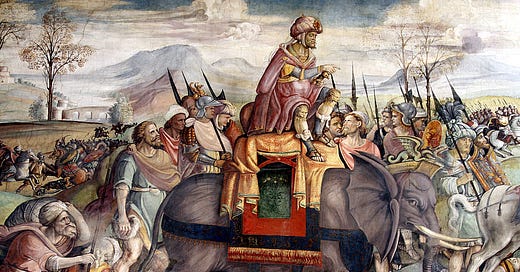The other great classical civilization
Review of Carthage Must Be Destroyed: The Rise and Fall of an Ancient Civilization by Richard Miles
I have always been curious about Carthage. This great power has long been defined against its adversaries, the Greeks and the Romans. Having left no real literary legacy, Carthage is like the dark matter of that period: you know it is there, but can't quite see it except as a gravitational well. And yet, it is portrayed as the alternative civilization t…
Keep reading with a 7-day free trial
Subscribe to Crawdaddy’s Substack to keep reading this post and get 7 days of free access to the full post archives.



